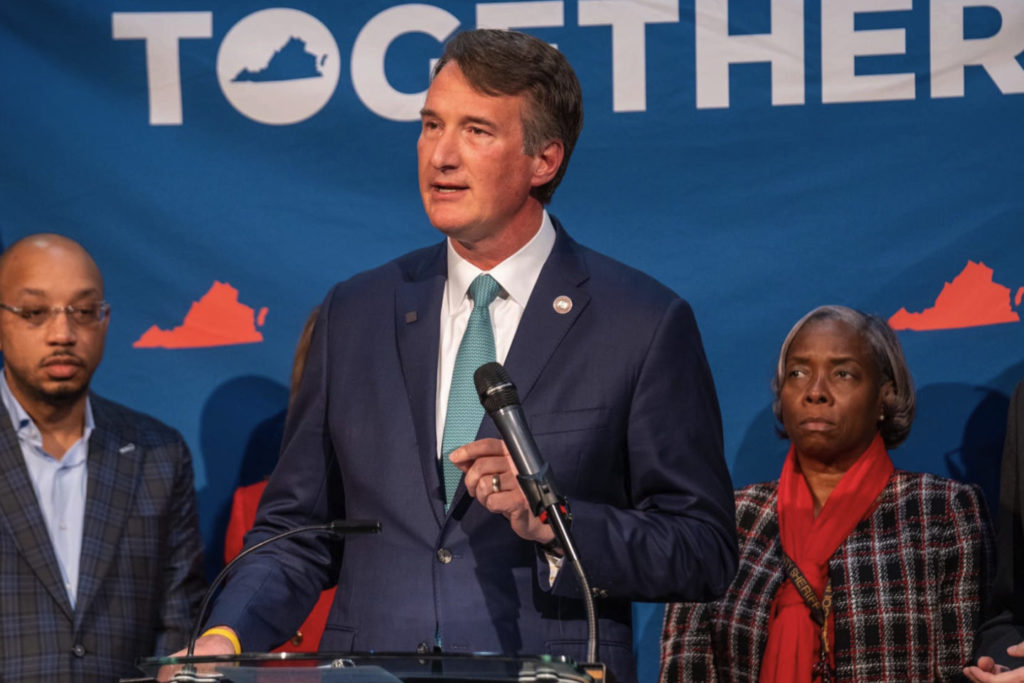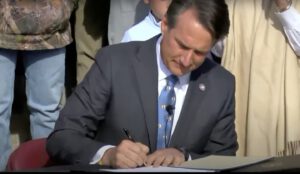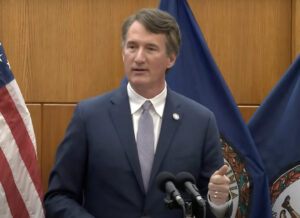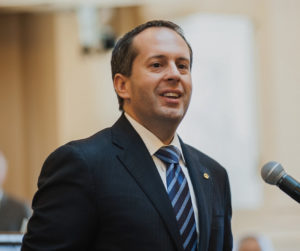County court reverses Virginia Gov. Youngkin’s decision to stop cap-and-trade taxing scheme that raises power rates
A retired judge has sided with a lobbying group for professionals who weatherize homes that Virginia’s Republican Gov. Glenn Youngkin can’t remove the state from a Democrat-approved…

A retired judge has sided with a lobbying group for professionals who weatherize homes that Virginia’s Republican Gov. Glenn Youngkin can’t remove the state from a Democrat-approved cap-and-trade tax scheme.
The cap-and-trade tax scheme, known as the Regional Greenhouse Gas Initiative (RGGI), was approved by Virginia Democrats in 2020 by a 47-45 vote in the Virginia House.
RGGI taxes carbon with the intention of reducing carbon emissions. But often, cap-and-trade schemes just pass along costs to consumers while doing little to reduce pollution.
The American Legislative Council (ALEC), a conservative think tank, estimates that RGGI cost Virginians $300 million last year, after racking up a total cost of $500 million in the previous two years.
Half the money generated by the carbon tax scheme in Virginia goes into flood remediation and the other half into weatherization programs for low-income households, who employ weatherization professionals who have no other source of income.
RGGI is the sole source of income for the Association of Energy Conservation Professionals (AECP) who were the plaintiffs in the suit against Youngkin, said the judge in his 5-page decision.
“This program is the sole source of funding for [AECP] and has allowed its members to support over fifty staff positions, seventeen of which were added directly as a result of funding from RGGI,” said retired Judge C. Randall Lowe, who served as mediator/arbitrator, in the decision.
Fifty staff positions at the cost of half of the $800 million generated by RGGI, is $8 million per job.
AECP was originally created in 1995 under the federal Weatherization Assistance Program, the judge noted.
Youngkin wanted the Old Dominion state to dump the RGGI program because it adds too much to the cost of energy for Virginians.
In an executive order signed in 2022, Youngkin directed state authorities to report to him on the effectiveness of the RGGI program.
Subsequently, the Air Pollution Control Board voted to repeal the cap-and-trade regulation.
“Today’s commonsense decision by the Air Board to repeal RGGI protects Virginians from the failed program that is not only a regressive tax on families and businesses across the Commonwealth, but also does nothing to reduce pollution,” said Youngkin in a statement at the time.
The think tank ALEC says RGGI forces the state to buy electricity from out-of-state to avoid the carbon tax. It also encourages companies to burn alternative fuels such as biomass, which releases more pollutants but are exempt under the carbon scheme, because it’s a renewable fuel.
“In practice, however, biomass releases almost 50% more carbon dioxide into the atmosphere than coal and over 300% more than natural gas,” said ALEC.
Virginia’s electric utility rates are about 36% higher now than when the RGGI law was passed, according to data provided by YCharts. But Dominion Energy, headquartered in Richmond, said that Virginia residents are likely to see an additional 50% hike in electric rates in the next ten years.
Youngkin said at the time of his executive order that while the legislature authorized the regulations allowing Virginia to enter the RGGI, the law didn’t mandate that state authorities adopt that cap-and-trade framework.
Jason Miyares, Virginia Attorney General, said the state would appeal the decision. The AG agreed with Youngkin’s assertion that the law gives the governor discretion to end participation in RGGI.
“This was in the governor’s powers and how the law was actually written to the Virginia code. So we obviously have a disagreement in the interpretation of the law and the code, but we look forward to making this argument at the next step in the appeals process,” Miyares told reporters.
Americans for Prosperity- Virginia (AFP-VA) responded to the Lowe’s decision by saying that the cap and trades scheme under RGGI just benefits politicians’ pet projects but doesn’t benefit residents as a whole.
“Virginians’ power bills are way too high because of reckless ideological groups driving radical and irresponsible energy policies,” said AFP-VA State Director Tim Parrish. “While we respect our institutions, Attorney General of Virginia Jason Miyares has made it clear that the Governor was clearly acting within the guidelines passed by the General Assembly to exit the unpopular Regional Gas and Greenhouse Initiative.”



